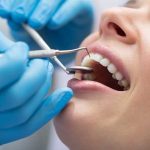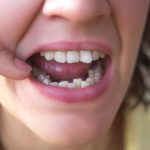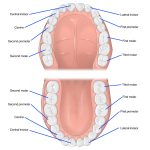Why Does Brushing Cause Stomach Pain? Understanding the Connection Between Toothpaste and Digestive Discomfort
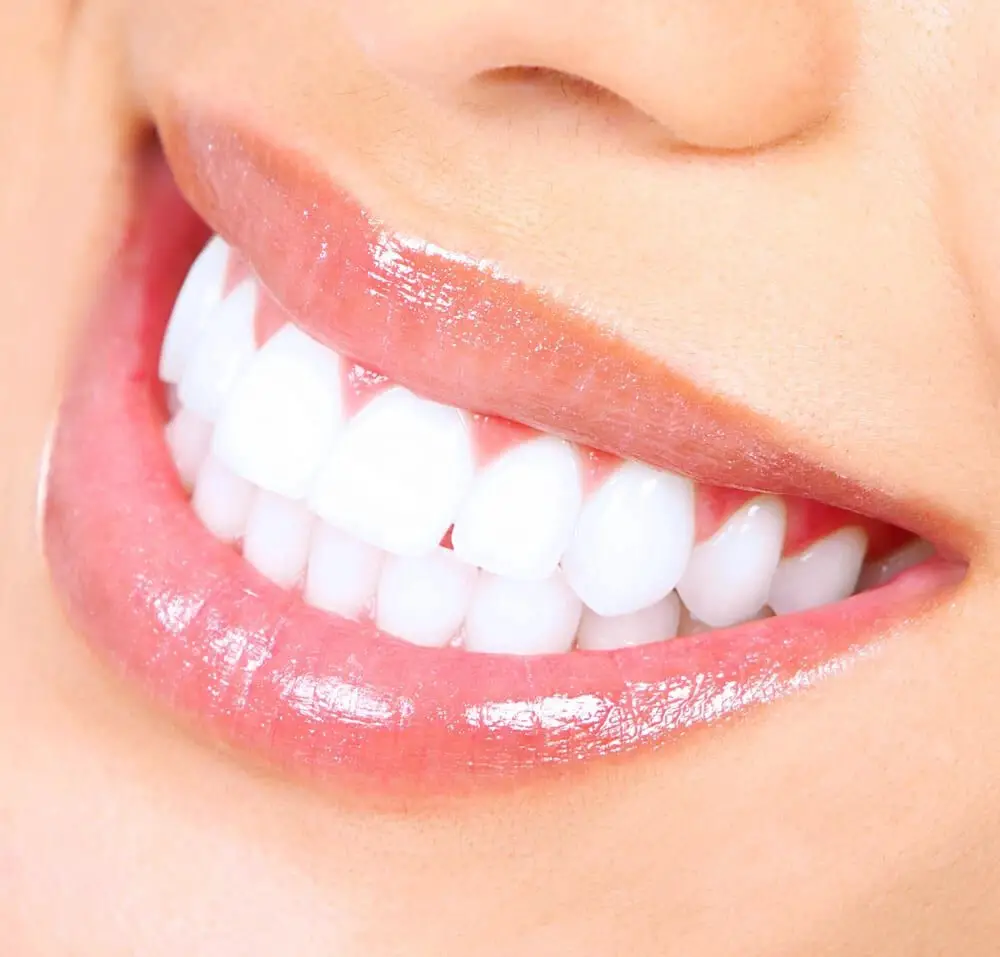
Brushing your teeth is a vital part of maintaining good oral hygiene. However, have you ever experienced stomach pain after brushing your teeth? If yes, then you are not alone. Many people complain of stomach discomfort after brushing their teeth, which can be a frustrating experience. The reason behind this uncomfortable phenomenon is not always clear, but it can be attributed to various factors. Understanding the connection between toothpaste and digestive discomfort is essential to prevent any further discomfort and maintain your overall health. Toothpaste contains a variety of ingredients that can cause stomach pain, including fluoride, sodium lauryl sulfate, and triclosan. Fluoride is an essential ingredient in toothpaste as it helps to prevent tooth decay and strengthen enamel. However, excessive fluoride intake can cause stomach pain, nausea, and vomiting. Sodium lauryl sulfate is another common ingredient in toothpaste, which is added to create the foaming effect. It can also irritate the stomach lining, causing discomfort, and some people may even be allergic to it. Triclosan, an antibacterial agent, is also commonly found in toothpaste and can cause digestive issues, such as diarrhea and abdominal pain. Understanding these ingredients and their potential effects on the body can help you choose the right toothpaste for you and avoid any unwanted stomach discomfort.
Many people experience stomach pain after brushing their teeth, and the reason behind this phenomenon is not well understood. While some individuals may attribute this discomfort to the consumption of toothpaste, others might associate it with the mechanical action of brushing itself. However, recent studies suggest that the foaming agent found in most toothpaste brands, sodium lauryl sulfate (SLS), could be the culprit. This chemical compound, which creates the characteristic foam when mixed with water, can cause irritation and inflammation in the digestive system, leading to bloating, cramps, and other digestive discomforts. Understanding the connection between toothpaste and stomach pain is essential to find solutions to alleviate this issue and prevent its recurrence.
It is essential to comprehend the link between toothpaste and digestive discomfort to maintain good oral hygiene without experiencing unwanted side effects. Many people experience stomach pain and discomfort after brushing their teeth, which may be caused by the ingredients in toothpaste. The abrasive agents and chemicals in toothpaste can irritate the stomach lining, causing acid reflux and gastric distress. Understanding this connection can help individuals make informed decisions when selecting toothpaste and brushing techniques that suit their unique needs. By using toothpaste that is gentle on the stomach and avoiding brushing immediately after eating, individuals can maintain good oral health while minimizing the risk of digestive discomfort.
What Causes Stomach Pain When Brushing?

Stomach pain while brushing can be an uncomfortable and unpleasant experience that many people have encountered. The primary reason behind this occurrence is the presence of a nerve called the vagus nerve that runs from the brainstem to the abdomen. This nerve is responsible for regulating various bodily functions, including digestion and heart rate. When we brush our teeth aggressively or swallow toothpaste, the vagus nerve can become stimulated, causing discomfort or pain in the stomach. Toothpaste ingredients can also contribute to stomach pain during brushing. Some toothpaste contains sodium lauryl sulfate (SLS), a foaming agent that can irritate the lining of the stomach and cause discomfort. Additionally, some individuals may be sensitive or allergic to certain ingredients in toothpaste, such as fluoride, which can lead to stomach pain. It is essential to check the ingredients of your toothpaste and switch to a gentler formula if necessary to alleviate the symptoms of stomach pain while brushing. Overall, understanding the causes of stomach pain while brushing can help individuals make informed decisions about their oral hygiene routine. It is recommended to brush gently and avoid swallowing toothpaste to prevent vagus nerve stimulation. Additionally, choosing toothpaste with gentler ingredients can help alleviate any discomfort or pain in the stomach.
Toothpaste is a daily essential for maintaining good oral hygiene, but certain ingredients in toothpaste can cause stomach pain. Some of the common ingredients that cause digestive discomfort include fluoride, sodium lauryl sulfate (SLS), and artificial sweeteners. Fluoride is added to toothpaste to prevent cavities, but excessive ingestion can lead to stomach pain and even nausea. SLS is a foaming agent that is added to toothpaste to create a lather, but it can irritate the lining of the stomach, leading to digestive discomfort. Artificial sweeteners like saccharin and aspartame are commonly added to toothpaste to improve taste, but they can also cause stomach pain and digestive issues in some people. It’s important to read the ingredient list on toothpaste packaging and choose products that are free from these ingredients if you are prone to digestive discomfort.
The body’s reaction to the ingredients in toothpaste varies depending on the individual’s sensitivity. The primary culprits for stomach pain are triclosan, an antibacterial agent, and sodium lauryl sulfate (SLS), a foaming agent. Triclosan disrupts the gut microbiome and can lead to abdominal discomfort, while SLS can irritate the lining of the stomach and cause inflammation. Additionally, some toothpaste contains fluoride, which in large quantities can cause nausea and vomiting. These ingredients can be absorbed through the mouth lining and enter the bloodstream, affecting the digestive system. It is important to pay attention to the ingredients in toothpaste and switch to a formula that is more gentle on the stomach if necessary.
The Role of Saliva
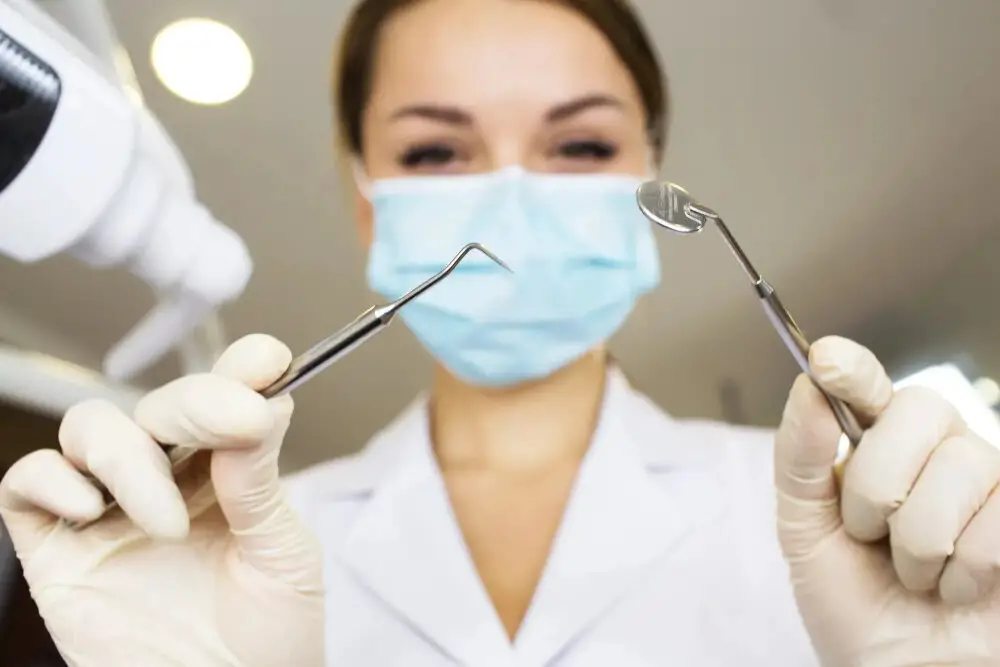
Saliva plays a crucial role in the digestive process, aiding in the breakdown of food and the prevention of digestive discomfort. It contains enzymes that begin the process of breaking down carbohydrates and fats, making them easier to digest. Additionally, saliva helps to moisten food, making it easier to swallow and preventing the risk of choking. Without saliva, the digestive process would be significantly more difficult and uncomfortable, as food would need to be broken down solely by stomach acid. In addition to its digestive benefits, saliva also plays a role in dental health. It helps to neutralize the pH levels in the mouth, preventing the growth of harmful bacteria that can lead to tooth decay and gum disease. Saliva also contains minerals, such as calcium and phosphate, which help to strengthen tooth enamel and prevent cavities. Therefore, it is important to maintain proper saliva production by staying hydrated and practicing good oral hygiene habits.
Saliva, a clear liquid secreted by the salivary glands, plays a crucial role in digestion. It contains enzymes like amylase that start breaking down carbohydrates even before they reach the stomach. Besides, saliva moistens the food and makes it easier to swallow, and the enzymes present in it help to kill the harmful bacteria that might be present in the food. In addition, saliva contains bicarbonate ions that help to neutralize the acidic environment in the mouth and the esophagus, preventing discomfort and erosion of the lining. Therefore, insufficient saliva secretion can cause indigestion, halitosis, dry mouth, and other digestive problems that can lead to stomach pain.
Toothpaste is a common household item that we use every day to maintain our oral hygiene. However, certain ingredients in toothpaste can have adverse effects on our saliva production, which can lead to digestive discomfort. One of the main culprits is sodium lauryl sulfate (SLS), a foaming agent found in most toothpastes. SLS can cause irritation to the mucous membranes in the mouth, leading to a decrease in saliva production. Reduced saliva production can have a significant impact on our digestive system, as saliva plays a crucial role in breaking down food and facilitating the swallowing process. Therefore, it’s essential to choose toothpaste that’s free from SLS and other harmful ingredients to prevent digestive discomfort.
Tips for Avoiding Stomach Pain When Brushing
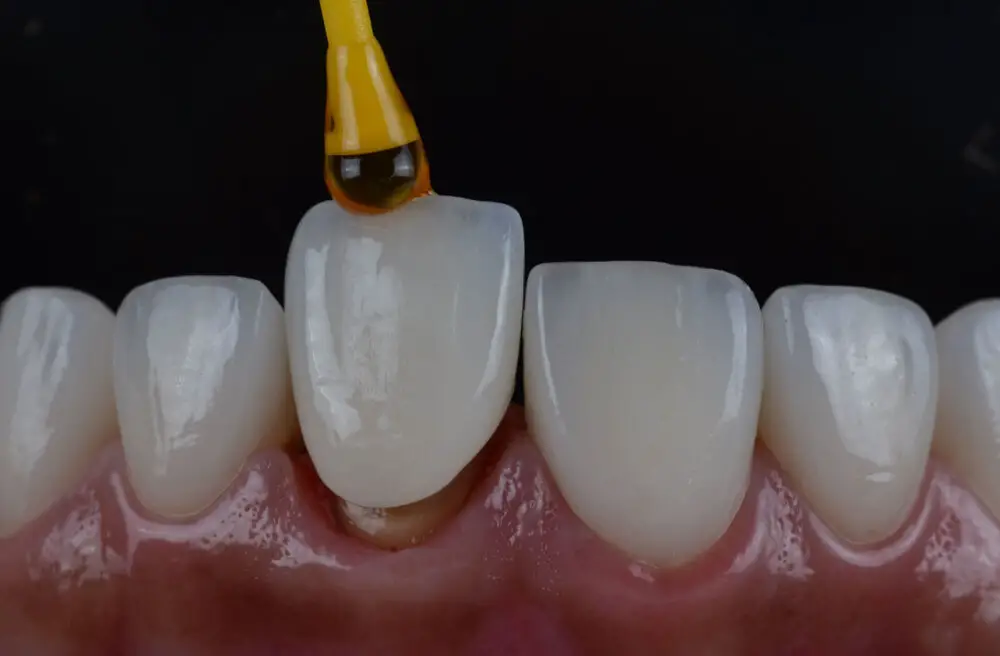
Stomach pain is an unpleasant sensation that can occur after brushing your teeth. It is a common problem that affects many people and can be caused by various factors. However, one of the most significant causes of stomach pain during brushing is the use of toothpaste containing certain ingredients. Toothpaste contains chemicals such as sodium lauryl sulfate that can cause irritation to the stomach lining and lead to discomfort. To avoid stomach pain when brushing, it is essential to choose a toothpaste that is gentle on your stomach and does not contain harsh chemicals. One of the best tips for avoiding stomach pain when brushing is to choose a toothpaste that is formulated specifically for sensitive stomachs. This type of toothpaste is designed to be gentle and soothing on the stomach lining, reducing the risk of irritation and discomfort. In addition, it is essential to avoid brushing your teeth immediately after eating or drinking acidic foods and beverages, as they can cause stomach pain and discomfort. It is recommended to wait for at least 30 minutes after eating before brushing your teeth to allow your stomach to settle down. By following these tips, you can avoid stomach pain when brushing and maintain good oral health.
For individuals who experience digestive discomfort after brushing their teeth, alternative toothpaste options may provide relief. One option is to use a toothpaste that does not contain sodium lauryl sulfate (SLS), a foaming agent that can irritate the digestive system. Another option is to use a natural toothpaste that is free of artificial ingredients and chemicals. These types of toothpaste may contain ingredients such as baking soda, coconut oil, and essential oils that promote oral health without causing stomach pain. Additionally, some individuals may benefit from using a tooth powder, which is a dry powder that can be applied to the teeth and gums. Overall, experimenting with different toothpaste options can help alleviate digestive discomfort and promote overall oral health.
To minimize discomfort when brushing, it is important to use the correct technique. One technique is to use a soft-bristled toothbrush and gentle pressure. Brushing too hard can cause the bristles to irritate the gums and lead to stomach pain. It is also important to angle the toothbrush at a 45-degree angle towards the gum line and use short, circular strokes. This technique helps to remove plaque and debris without causing unnecessary discomfort. Additionally, avoiding toothpaste with strong flavors or ingredients like sodium lauryl sulfate can also help reduce stomach pain. Overall, taking the time to brush gently and with proper technique can help prevent discomfort and maintain good oral health.
Digestive discomfort can be a frustrating and uncomfortable experience, but there are several tips for managing it. First, it is important to eat slowly and chew your food thoroughly to aid digestion. You should also avoid overeating and consuming large meals, as this can put additional strain on your digestive system. Additionally, incorporating fiber-rich foods into your diet can help regulate bowel movements and prevent constipation. Drinking plenty of water and avoiding sugary or acidic drinks can also help reduce stomach discomfort. If you experience persistent digestive issues, it may be helpful to consult a healthcare professional to determine the underlying cause and develop an appropriate treatment plan. By implementing these strategies, you can help alleviate digestive discomfort and improve your overall digestive health.
When to See a Doctor

When experiencing stomach pain after brushing your teeth, it is important to know when to see a doctor. If the pain is mild and goes away quickly, it may not be a cause for concern. However, if the pain is severe, lasts for a long time, or is accompanied by other symptoms such as nausea or vomiting, it is important to seek medical attention. These could be signs of a more serious underlying condition such as acid reflux or an ulcer. It is always better to err on the side of caution and seek medical advice if you are concerned. Furthermore, if you are experiencing stomach pain after brushing your teeth regularly, it may be a sign of an allergy or sensitivity to the ingredients in toothpaste. In this case, it is important to see a doctor or dentist to determine the cause of the problem. They may recommend switching to a different type of toothpaste or prescribe medication to alleviate the symptoms. It is important not to ignore persistent stomach pain as it could be a sign of a more serious underlying health condition that requires medical attention.
While stomach pain when brushing can be a common issue caused by swallowing toothpaste or mouthwash, there are certain signs that may indicate a more serious underlying issue. If the pain is severe, persistent, or accompanied by other symptoms such as vomiting, diarrhea, fever, or dehydration, it may indicate an infection or inflammation in the digestive tract. Additionally, if the pain is localized to a specific area of the stomach, it may be a sign of a stomach ulcer or other gastrointestinal condition. If you experience any of these symptoms, it is important to consult a healthcare professional to determine the underlying cause of your discomfort and receive appropriate treatment.
It is essential to seek medical attention when experiencing persistent or severe stomach pain after brushing. This discomfort may indicate an underlying medical condition that requires prompt diagnosis and treatment. It is also crucial to seek medical attention if you notice any blood in your vomit or stool or if you experience other symptoms such as fever, nausea, or diarrhea. A healthcare professional can perform a physical examination and recommend appropriate tests to diagnose the underlying cause of your stomach pain. Timely medical intervention can help prevent potential complications and ensure prompt relief from your discomfort.
In conclusion, brushing your teeth is an essential part of maintaining good oral hygiene. However, it can also cause stomach pain due to certain ingredients in toothpaste. The foaming agents and flavorings found in some toothpaste brands can irritate the stomach lining, leading to discomfort and even nausea. To avoid this, it’s important to choose a toothpaste that is gentle on the stomach and free from harsh chemicals. Additionally, taking breaks between brushing and eating, as well as using a smaller amount of toothpaste, can also help reduce any digestive discomfort. By understanding the connection between toothpaste and stomach pain, we can take steps to protect our overall health and well-being.
Prioritizing oral health and managing digestive health are two crucial aspects of our overall health and well-being. Neglecting either of them can lead to severe health consequences. Poor oral hygiene can result in tooth decay, gum diseases, and bad breath. On the other hand, digestive discomfort can cause acid reflux, bloating, and constipation. The connection between oral health and digestive health is often overlooked, but it is vital to understand that the two are interrelated. For instance, using toothpaste that contains certain ingredients can cause stomach pain or discomfort. Therefore, it is essential to use toothpaste that is gentle on the stomach and to maintain good oral hygiene to prevent any digestive issues. By prioritizing both oral health and digestive health, we can ensure optimal health and well-being.
In conclusion, it is essential to be mindful of the toothpaste we use and the quantity we ingest while brushing. If you’re experiencing stomach pain after brushing, it may be wise to switch to a toothpaste that is free of certain ingredients, such as sodium lauryl sulfate. Additionally, it is critical to maintain good oral hygiene habits, including regular brushing and flossing, to prevent dental problems that may lead to more significant health issues. As always, consult with a dentist or medical professional if you have concerns about your oral health or stomach discomfort. Taking care of our teeth and overall health is crucial, and small changes in our daily routine can make all the difference.
Conclusion
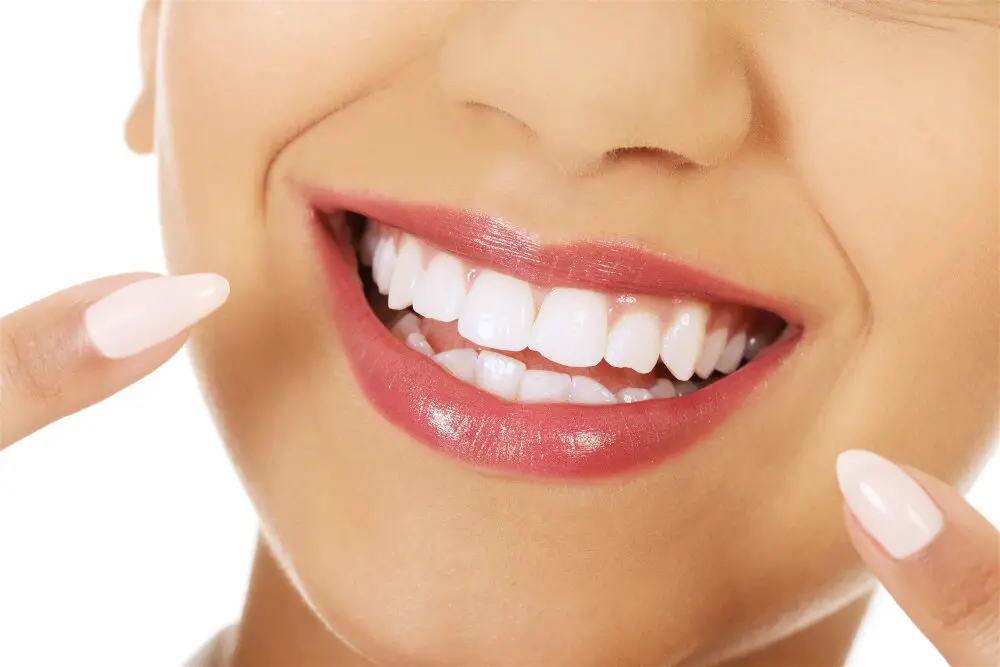
In conclusion, brushing your teeth is a vital part of maintaining good oral hygiene, but it can lead to stomach pain in some individuals. The ingredients in toothpaste, such as sodium lauryl sulfate and fluoride, can irritate the stomach lining and cause discomfort. Moreover, swallowing toothpaste can lead to more severe symptoms, including nausea and vomiting. To prevent stomach pain, it is essential to use a toothpaste that is free of harsh chemicals and to spit out the toothpaste after brushing. Furthermore, waiting for at least 30 minutes after brushing before eating can also help reduce the risk of digestive discomfort. Overall, being mindful of your toothpaste and brushing habits can help you maintain good oral health without causing unnecessary stomach pain.
